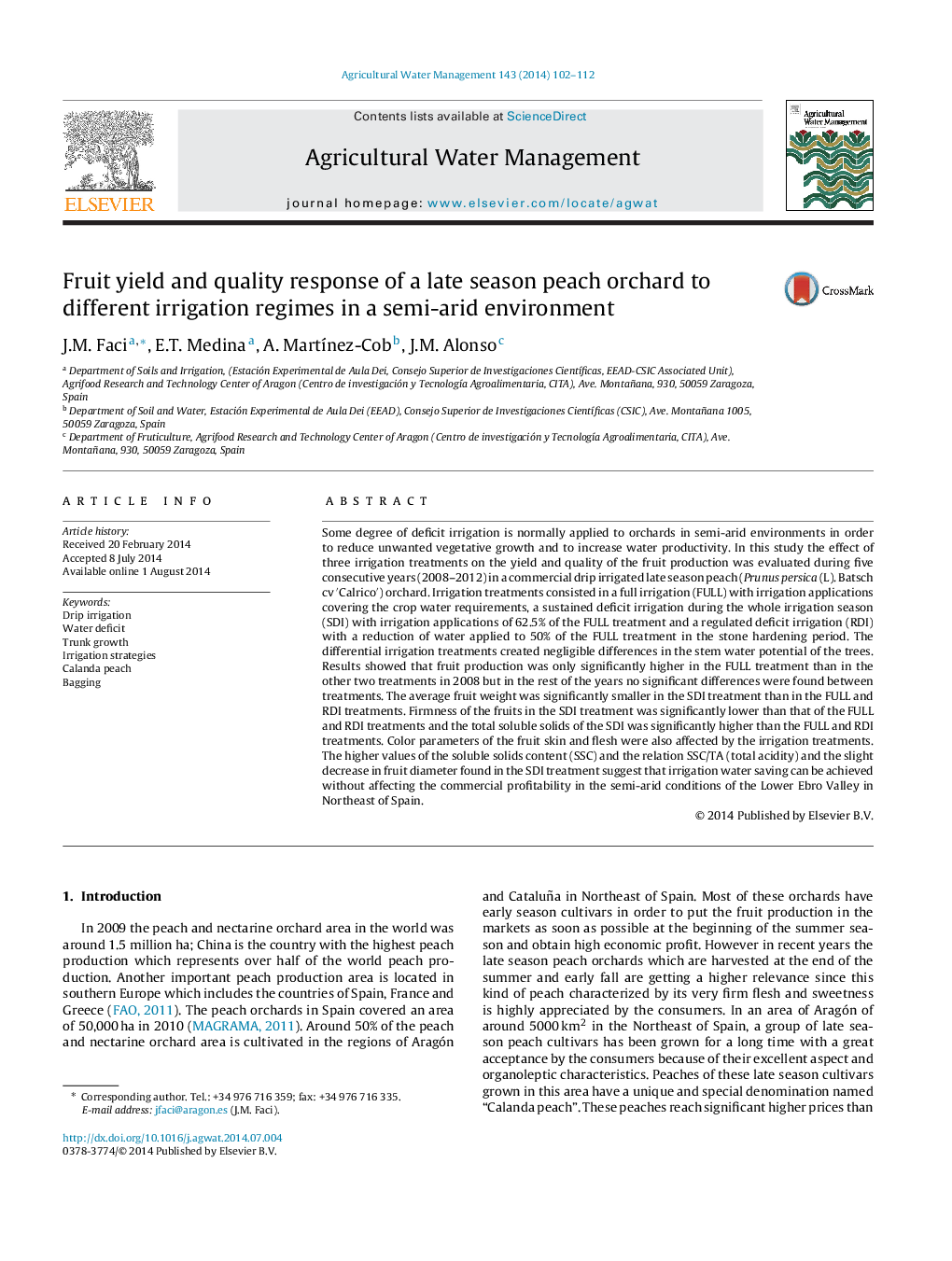| Article ID | Journal | Published Year | Pages | File Type |
|---|---|---|---|---|
| 4478634 | Agricultural Water Management | 2014 | 11 Pages |
•Characteristics of the fruit in the special denomination “Peach of Calanda”.•Similar fruit yield and quality in complete and regulated deficit irrigation (RDI).•Significant decrease of fruit caliber in sustained deficit irrigation (SDI).•Significant increase of soluble solids content (SSC) in SDI treatment.•Significant increase of SSC/TA (total acidity) in SDI treatment.
Some degree of deficit irrigation is normally applied to orchards in semi-arid environments in order to reduce unwanted vegetative growth and to increase water productivity. In this study the effect of three irrigation treatments on the yield and quality of the fruit production was evaluated during five consecutive years (2008–2012) in a commercial drip irrigated late season peach (Prunus persica (L). Batsch cv ́Calricó) orchard. Irrigation treatments consisted in a full irrigation (FULL) with irrigation applications covering the crop water requirements, a sustained deficit irrigation during the whole irrigation season (SDI) with irrigation applications of 62.5% of the FULL treatment and a regulated deficit irrigation (RDI) with a reduction of water applied to 50% of the FULL treatment in the stone hardening period. The differential irrigation treatments created negligible differences in the stem water potential of the trees. Results showed that fruit production was only significantly higher in the FULL treatment than in the other two treatments in 2008 but in the rest of the years no significant differences were found between treatments. The average fruit weight was significantly smaller in the SDI treatment than in the FULL and RDI treatments. Firmness of the fruits in the SDI treatment was significantly lower than that of the FULL and RDI treatments and the total soluble solids of the SDI was significantly higher than the FULL and RDI treatments. Color parameters of the fruit skin and flesh were also affected by the irrigation treatments. The higher values of the soluble solids content (SSC) and the relation SSC/TA (total acidity) and the slight decrease in fruit diameter found in the SDI treatment suggest that irrigation water saving can be achieved without affecting the commercial profitability in the semi-arid conditions of the Lower Ebro Valley in Northeast of Spain.
